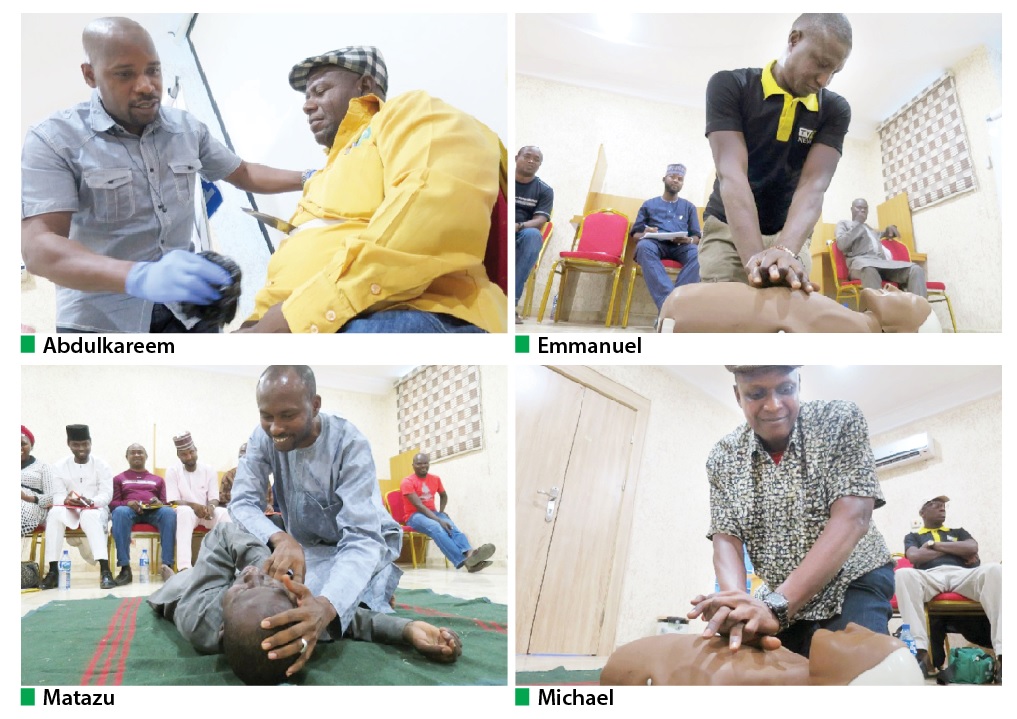What it is like to be a journalist on the frontline of the Lake Chad conflict
Journalists at a First Aid training in northeast Nigeria narrate near-death experiences and perceived bias as the two main sentiments. Abdulkareem Haruna: 20-year veteran reporter at Premium Times Newspaper I never envisaged that this would happen in Nigeria. I have covered politics and domestic crime and other related issues but nothing like this. I started […]

Journalists at a First Aid training in northeast Nigeria narrate near-death experiences and perceived bias as the two main sentiments.
Abdulkareem Haruna: 20-year veteran reporter at Premium Times Newspaper
I never envisaged that this would happen in Nigeria. I have covered politics and domestic crime and other related issues but nothing like this. I started with no knowledge of how to cover such conflict situations. I was learning on the job. The big challenge was that I was exposed to danger and hazards with only general knowledge of how to stay out of trouble. I witnessed traumatic situations, blood and gore, pain, and survived attacks. I was almost a casualty of the Maiduguri Post Office bombing in January 2014. I was about to enter the area where the explosion happened but was delayed for a few minutes by a conversation I was having with a colleague in my car. That conversation probably saved my life. Despite my fear and the panic around me, I was able to take photos of the tragedy that won me an award in my office.
Kabiru Matazu: reporter for 7 years at Daily Trust Newspaper
In 2011, when I first experienced the war in Yobe State, I didn’t have the practical skill for reporting conflicts other than what I had learned in school. I was caught in the dilemma of how to balance my stories as it is difficult to get information from both sides, meaning the Nigerian military and the Armed Opposition Group. I also faced accusations of bias from both sides which sometimes led to direct threats against me.
Julius Emmanuel: 15-year veteran cameraman at TVC
Once, I was covering the aftermath of a bomb blast at a market in Maiduguri. I arrived there before the security agencies. When they arrived, I was arrested and intimidated. On another occasion, I was covering yet another bomb blast when I was attacked by bystanders and beaten. My camera was damaged, and I barely escaped with my life. An experience I will never forget. Visiting incident scenes with a camera has proved to be a serious challenge here in Maiduguri. You are much safer when you go without any gear.
Michael Olugbode: 20-year veteran reporter at ThisDay Newspaper
When the girls from Dapchi were returned home by the armed opposition, I happened to be on my way there to report a story. We were denied entry into the town and were lucky to witness the arrival of the Armed Opposition to return the girls. I saw it firsthand and was able to cover the story as it occurred. If I were to write the story of my experience as a journalist here, I would include my experiences of escaping death – like when my conversation with Abdulkareem Haruna saved us both from getting caught in the explosion at Maiduguri post office, and how I have been able to report from this region successfully even though I do not speak any of the local languages.
(icrc)
